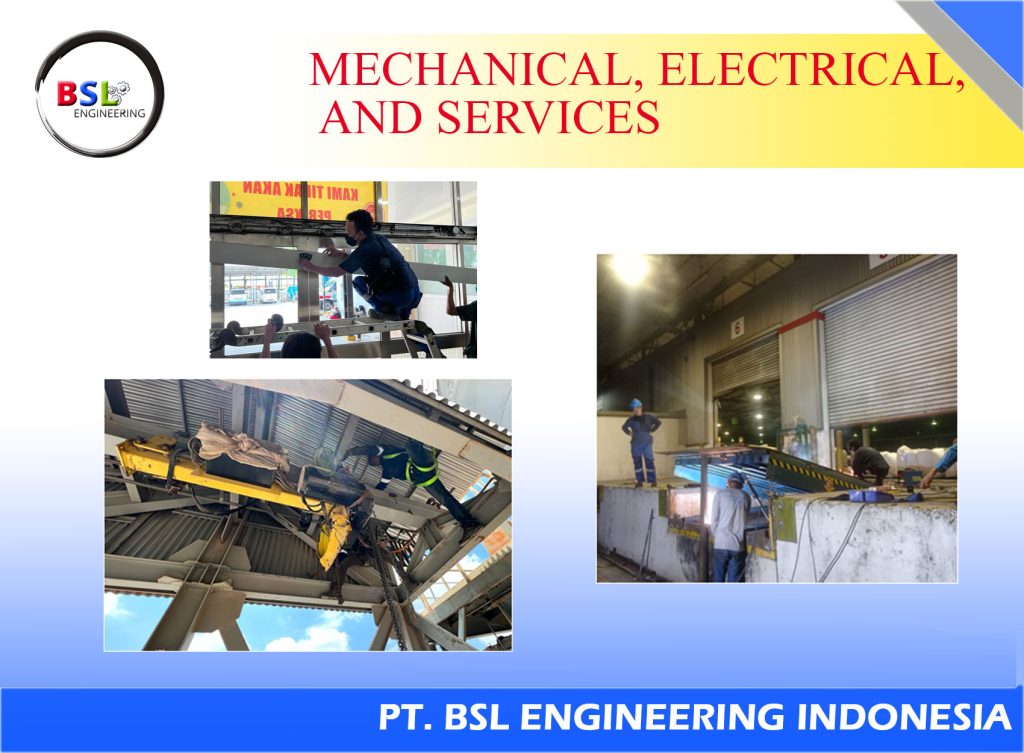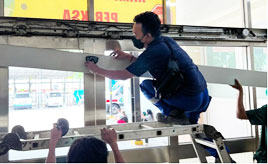Exploring Mechanical, Electrical, and Services in Engineering
In the vast landscape of engineering, the triumvirate of Mechanical, Electrical, and Services plays a pivotal role in shaping the modern world. These three branches form the backbone of numerous industries, ensuring functionality, efficiency, and innovation across various sectors. Let’s delve into the intricacies of Mechanical, Electrical, and Services and understand their significance in today’s technological landscape.

Mechanical Engineering: The Power of Movement
Mechanical engineering revolves around the principles of motion, force, and energy. Professionals in this field design, analyze, and manufacture mechanical systems that power machinery, vehicles, and various devices. From the intricacies of automotive engines to the efficiency of industrial manufacturing processes, mechanical engineers are at the forefront of innovation.
Key areas within mechanical engineering include thermodynamics, fluid dynamics, and material science. These areas converge to create cutting-edge solutions, such as advanced robotics, renewable energy systems, and aerospace technologies. The work of mechanical engineers is crucial in ensuring the seamless functioning of mechanical components that drive our modern world.
Electrical Engineering: Mastering the Flow of Energy

Electrical engineering focuses on the study and application of electricity, electronics, and electromagnetism. Professionals in this field design, develop, and maintain electrical systems that power everything from household appliances to complex communication networks. Electrical engineers play a crucial role in advancing technology and shaping the digital age.
In the realm of electrical engineering, experts work on diverse projects, including the design of electronic circuits, development of power generation systems, and the creation of innovative solutions like smart grids and renewable energy technologies. The ever-evolving field of electrical engineering continues to push the boundaries of what is possible in the world of electronics and energy.
Services Engineering: Bridging the Gap

Services engineering acts as the glue that binds mechanical and electrical systems together. It encompasses a wide range of services, including heating, ventilation, air conditioning (HVAC), plumbing, and fire protection. Services engineers ensure that buildings and infrastructure are equipped with efficient and sustainable systems, providing comfort and safety to occupants.
In addition to designing and implementing these systems, services engineers are increasingly incorporating smart technologies to enhance energy efficiency and sustainability. The integration of services engineering with mechanical and electrical components creates synergies that result in more intelligent and eco-friendly solutions for the built environment.
FAQ Section:
Q1: How do Mechanical, Electrical, and Services engineering contribute to sustainability?
A1: Mechanical, Electrical, and Services engineering collectively contribute to sustainability by developing energy-efficient solutions, incorporating renewable energy sources, and designing systems that minimize environmental impact.
Q2: What role do electrical engineers play in the digital age?
A2: Electrical engineers play a crucial role in the digital age by designing electronic circuits, developing communication networks, and advancing technologies that power the digital revolution.
Q3: How does services engineering impact the comfort and safety of buildings?
A3: Services engineering ensures the comfort and safety of buildings by designing and implementing systems such as HVAC, plumbing, and fire protection, creating environments that are both functional and secure.
PT. BSL ENGINEERING INDONESIA
Specialist in Material Handling, Engineering, Design and Procurement PT.BSL Engineering Indonesia
021-2927650 0812-9811-1780 (Telp./WA)
Ruko Sentra Niaga Kalimalang, Jl. Ahmad Yani, Kayuringin Jaya, Bekasi, Jawa Barat 17000
